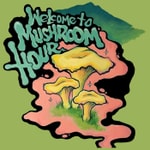Unpacking Ideas – Details, episodes & analysis
Podcast details
Technical and general information from the podcast's RSS feed.

Unpacking Ideas
Zach Stehura
Frequency: 1 episode/40d. Total Eps: 39

Recent rankings
Latest chart positions across Apple Podcasts and Spotify rankings.
Apple Podcasts
🇬🇧 Great Britain - philosophy
20/07/2025#77🇨🇦 Canada - philosophy
06/06/2025#86🇫🇷 France - philosophy
25/12/2024#97🇫🇷 France - philosophy
24/12/2024#89🇫🇷 France - philosophy
23/12/2024#74🇫🇷 France - philosophy
22/12/2024#56🇫🇷 France - philosophy
21/12/2024#40
Spotify
No recent rankings available
Shared links between episodes and podcasts
Links found in episode descriptions and other podcasts that share them.
See allRSS feed quality and score
Technical evaluation of the podcast's RSS feed quality and structure.
See allScore global : 43%
Publication history
Monthly episode publishing history over the past years.
33. Marie-Louise von Franz on The Problem of the Eternal Child
lundi 17 juin 2024 • Duration 01:18:29
In this episode we unpack, Swiss Psychologist, Marie-Louise von Franz's classic book, "The Problem of the Puer Aeternus" from a series of lectures she gave in 1959.
This book explores
-The Eternal Child Archetype
-The Mother Complex (Jungian)
-The Loss of Initiation Rituals in the Modern Age
Links to Reading & Articles mentioned
The Problem of the Puer Aeternus by Marie-Louis von Franz
The Little Prince by Antoine de Saint-Exupery
*note* reading is not required to enjoy this episode!
Host: Zach Stehura UnpackingIdeas.com
Guest: David Bloome
Music: Polyenso
Time Stamps
0:00:00 Introduction
0:02:24 David’s Story Discovering the book
0:12:07 Characteristics of The Puer Aeternus
0:16:14 Commitmentphobia/Megalomania
0:23:00 The Mother Complex
0:28:46 Enmeshment
0:37:45 Analysis of “The Little Prince” by Antoine de Saint-Exupery
0:40:47 Symbolism of the Boa Constrictor choking the Elephant
0:46:00 Symbolism of the Little Prince Image
0:50:45 Symbolism of The Overgrown Baobob Trees
0:54:11 The Literal and Figurative Crash of Individuals suffering from the Eternal Child Complex
0:58:04 Von Franz’s Antidote to the Problem - Initiation Rituals
1:02:02 Consequences of the Lack of Initiation Rituals in the Modern Age
1:06:00 The literal and Figurative crash of Societies Suffering from the Eternal Child Complex
1:08:40 Jung’s Antidote to the Problem- Work
1:17:18 outro
24. Elisabeth Kubler-Ross on The Five Stages of Grief
Season 1 · Episode 24
lundi 21 novembre 2022 • Duration 01:31:45
In this episode we unpack Swiss Psychiatrist and Author Elisabeth Kubler-Ross's classic book "On Death and Dying" from 1969.
This book explores...
- The Fear of Death in the Modern Age
- The Five Stages of Grief
- Advice for Navigating the 5 Stages of Grief
Links to Reading & Articles mentioned
On Death and Dying by Elisabeth Kubler-Ross
The Trauma of Birth by Otto Rank
Uses of the Erotic by Audrey Lorde
Illness as Metaphor by Susan Sontag
Empathy vs. Sympathy by Brene Brown (video)
*note* reading is not required to enjoy this episode!
Host: Zach Stehura UnpackingIdeas.com
Guest: Andrea Dispenziere Psychology Today
Theme Music: Polyenso
Timestamps
00:00:00 Introduction
00:02:58 Autumn’s Association with Death
00:06:15 Reminding Ourselves of our Mortality
00:13:19 Fear of Death in the Modern Age
00:14:40 Decline in Infant Mortality
00:17:25 Impersonal Treatment of Terminal Patients
00:24:29 The Illusion of Control
00:25:39 Summary of Kubler-Ross’s Interview Project
00:28:10 Verbal Ventilation
00:28:59 Importance of Meaning/Purpose
00:33:38 Mourning the Loss of Certain Abilities before Death
00:36:42 The Five Stages of Grief
00:38:23 Stage 1: Denial
00:39:18 Euphemism
00:40:51 Emotional Detachment
00:46:00 The Stigma of Denial
00:48:50 The Last Stage of the 5 stages of grief is the First Step of the 12 steps Program
00:50:05 The Link between Denial and Hope
00:52:16 Shock and Numbness
00:53:22 The Connection between Isolation and Denial
00:55:24 Stage 2: Anger
00:55:29 Anger at God
00:57:06 Anger at Oneself
00:59:05 Victim Blaming
01:01:00 Anger at the Living
01:02:16 Stage 3: Bargaining
01:02:54 Ambivalence
01:04:50 Bargaining with God
01:05:43 Reneging on the “Agreement”
01:10:45 Stage 4: Depression
01:10:49 Reactive vs. Preparatory Depression
01:12:47 Telling the Depressed Person to “Cheer Up”
01:14:15 Grieving your Anticipated Future
01:18:49 Sitting with the Person in Whatever Stage They’re In
01:21:28 Stage 5: Acceptance
01:21:36 Detaching from Life
01:22:30 Conflating Acceptance as “Quitting”
01:23:30 Difficulty Accepting Death in a Masculine Culture
01:25:57 Need for Solitude at End of Life
01:29:12 Kubler-Ross’s View of Death and Dying
01:30:30 Wrapping up/Outro
23. John Muir on Finding God in Nature
Season 1 · Episode 23
lundi 17 octobre 2022 • Duration 55:03
In this episode we unpack American Naturalist and Environmental Activist John Muir's Spiritual Writings from 1867-1915.
These letters explores...
- The Revitalizing Effects of Wilderness on the Body and Spirit
- The Interconnectedness of All Things in Nature
- Finding Gratitude in the Big and Little Things in Life
Links to Reading & Articles mentioned
Spiritual Writings by John Muir
Chief Seattle full Speech 1854
*note* reading is not required to enjoy this episode!
Host: Zach Stehura UnpackingIdeas.com
Guest: Mark McCann Wordsnvisions.com
Theme Music: Polyenso
Timestamps
00:00:00 Introduction
00:03:55 Hiking as a Metaphor for Life
00:05:13 Summary of John Muir’s Life
00:08:35 Water over Stones
00:09:14 Finding God in a Thunderstorm
00:12:44 The Fear of the Unknown
00:16:57 The Call of Nature
00:20:52 The Confessional of the Woods/Solitude
00:24:13 Man’s Relationship to Nature
00:34:10 Seeking God in Scripture and Nature
00:35:06 The Cathedral Effect
00:40:27 Gratitude for The Big and Little Things
00:43:22 The Revitalizing Effects of Wilderness on the Body and Spirit
00:51:00 Muir’s Mission in Life
00:53:34 Wrapping up/Outro
22. Aldous Huxley on Altered States of Consciousness
Season 1 · Episode 22
lundi 19 septembre 2022 • Duration 58:56
In this episode we unpack British novelist and public intellectual Aldous Huxley's 1954 essay "The Doors of Perception."
This essay explores...
- Huxley's experience on Mescalin
- The Reducing Valve Theory of Consciousness
- The human desire to transcend self-conscious self-hood
- The ethics of the contemplative life
Links to Reading & Articles mentioned
The Doors of Perception by Aldous Huxley
General Resonance Theory (paper)
Entropic Brain Hypothesis (paper)
Nested Observer Windows (paper)
The Bhagavad Gita translation by Eknath Easwaran
How to Change Your Mind by Michael Pollan
*note* reading is not required to enjoy this episode!
Host: Zach Stehura UnpackingIdeas.com
Guest: Nikki Johnson linkedin https://www.linkedin.com/in/nikki-johnson-free-thinker/
Theme Music: Polyenso
Timestamps
00:00:00 introduction
00:03:05 background about Huxley’s trip
00:05:58 the challenge of trying to communicate direct experience
00:11:30 Nikki's multi-sphere model of consciousness
00:14:28 the various terms for “God”
00:16:36 the reducing-valve theory of consciousness
00:27:52 types of people who filter out less primary consciousness
00:28:09 The Artist
00:31:26 The Schizophrenic
00:35:40 The Genius
00:36:33 the terror of witnessing God directly
00:43:06 the morality of the contemplative life
00:46:32 Huxley’s conception of enlightenment
00:48:46 the desire for self-transcendence
00:50:45 the war on psychedelics
00:54:27 integrating lessons from past lives
00:56:15 how a psychedelic experience changes a person’s character
00:57:23 wrapping up/outro
21. Eric Berne on Games People Play
Season 1 · Episode 21
vendredi 2 septembre 2022 • Duration 01:04:31
In this episode we unpack Canadian psychiatrist and analyst Eric Berne's 1964 book "Games People Play."
This book explores...
- The 6 different types of social interactions
- The most common games people play
- What intimacy is and why it is so rare
Links to Reading
Games People Play by Eric Berne
*note* reading is not required to enjoy this episode!
Host: Zach Stehura UnpackingIdeas.com
Guest: Sonya @selfhelpsonya on TikTok & Instagram
Theme Music: Polyenso
Timestamps
00:00:00 Intro
00:04:04 The 6 Types of Interactions
00:05:59 Withdrawal
00:08:09 Procedures
00:10:13 Rituals
00:11:39 Emotional Stroking
00:14:28 Calculating how many strokes to give
00:19:21 Pastimes/Small-talk
00:20:06 Types of Small-talk
00:21:08 How a host determines the pastimes people play at a party
00:24:08 The rules for small-talk
00:27:16 Why we engage in small-talk
00:28:38 The 3 Ego States
00:29:25 The Parent Ego State
00:29:45 The Child Ego State
00:30:18 The Adult Ego State
00:31:32 Complementary Transactions
00:33:31 Crossed Transactions
00:36:00 Child-Child Transaction
00:38:04 Adult-Adult Transaction
00:38:39 The 2 Levels of of an interaction (social level & psychological level)
00:39:05 Superficial Transactions
00:39:32 Ulterior Transactions
00:39:46 Flirtatious Games
00:42:32 A Thesaurus of Games
00:42:36 "Look Ma, No Hands!"
00:47:32 "Now I've got You, You Son-of-a-Bitch!"
00:52:55 "Why Don't You, Yes But..."
00:55:25 Intimacy
00:56:00 The Uncorrupted Child
00:57:39 Operations ie. stating a need directly
01:00:36 Why most people settle for games
01:01:53 Closing Thoughts
01:03:34 Outro
20. Jean Piaget on The Psychology of Children
Season 1 · Episode 20
lundi 8 août 2022 • Duration 01:30:37
In this episode we unpack Swiss Epistemologist and Developmental Psychologist Jean Piaget's 1969 book "The Psychology of a Child."
This book explores...
- The Stages of Cognitive Development
- How Morality develops in the child
- How and Why Children Play
Links to Reading and Other Sources Mentioned
The Psychology of the Child by Jean Piaget
A Piaget Primer by Dorothy G. Singer & Tracey A. Revenson
Conversations with Piaget by Jean-Claude Bringuier
Civilization and Its Discontents by Sigmund Freud
*note* reading is not required to enjoy this episode!
Host: Zach Stehura UnpackingIdeas.com
Guest: Jeff Micheal-Johnson
Theme Music: Polyenso
Timestamps
00:00:00 Intro
00:05:26 What Piaget was trying to study
00:09:15 How a Child Learns (Adaptation/Assimilation/Accommodation)
00:17:04 The Stages of Cognitive Development
00:24:00 The Sensory-Motor Stage/Egocentrism
00:30:42 Object Permanence
00:33:19 Language at the Sensory-Motor Stage
00:36:15 Play at the Sensory-Motor stage/Practice Play
00:37:32 The Pre-moral Stage
00:38:21 The Pre-operrational Stage/Superstitious Thinking
00:43:44 Language at the Pre-operational stage/The Monologue
00:46:00 The Collective Monologue
00:47:53 Play at the Pre-operational stage/Parallel Play
00:50:57 Symbolic Play
00:52:48 Animism
00:54:20 Free Play
00:57:39 The Conventional Stage of Morality
01:01:18 Conservation
01:06:36 The Concrete Operations Stage
01:07:15 Language in the Concrete Operations stage
01:10:07 Play at the Concrete Operations stages/Games with Rules
01:16:10 The Autonomous Stage of Morality
01:18:42 The Formal Operations Stage/Abstract Thought
01:22:17 Language at the Formal Operations Stage
01:22:56 Life after the 4 stages of Development
01:24:09 Spiritual Development
01:25:30 Egocentrism vs Egolessness
01:27:17 How the Child Lives on in the Adult
19. Albert Camus on The Absurdity of Life
Season 1 · Episode 19
lundi 25 juillet 2022 • Duration 01:10:24
In this episode we unpack Algerian Novelist Albert Camus' 1942 essay "The Myth of Sisyphus."
This essay explores...
-Why life is an absurdity
-Why sitting with inconvenient truths make them easier to bare
-How to find meaning in a meaningless world
Links to Reading and Other Sources Mentioned
The Myth of Sisyphus by Albert Camus
A Night of Serious Drinking by Rene Daumal
Man's Search for Meaning by Viktor E. Frankl
The Lord of the Rings: The Fellowship of the Rings (film)
*note* reading is not required to enjoy this episode!
Host: Zach Stehura UnpackingIdeas.com
Guest: Arthur O'Dwyer
Theme Music: Polyenso
Timestamps
00:00:00 Introduction
00:02:52 Writing from a place of confusion and curiosity
00:08:15 The only Serious Philosophical Problem
00:08:55 The Nietzschian Criterion
00:11:32 Can we live with the awareness of the absurd without turning away?
00:13:00 Suicide as a social cause vs. existential cause
00:14:56 Is living worth the suffering?
00:14:44 The uncertainty of the afterlife
00:16:47 Camus two certainties
00:18:08 Nostalgia for Unity
00:20:40 Camus’s Critique of Science
00:23:11 Waking up to the Absurd
00:27:35 Definition of Absurdity
00:30:04 Philosophical Suicide
00:30:55 Critique of Kierkegaard
00:36:25 Critique of the Phenomenologists
00:43:21 Truths worth Dying For
00:47:05 The Greek Myth of Sisyphus
00:52:50 What Makes Sisyphus a Tragedy
00:54:44 Abandoning Hope
00:57:29 Consciousness as the cause of and cure to suffering
00:58:16 Finding Meaning in the struggle
01:03:42 We can only control how we respond
01:05:27 Crushing Truths Perish from Being Acknowledged
01:09:00 wrapping up/outro
18. Harry Frankfurt on Bull$#!T
Season 1 · Episode 18
lundi 4 juillet 2022 • Duration 51:31
In this episode we unpack American Philosopher Harry G. Frankfurt's 1986 essay "On Bullshit."
This essay explores...
-What bullshit is
-How bullshitting differs from lying
-Why bullshitting is so prevalent in our culture
Links to Reading and Other Sources Mentioned
On Bullshit by Harry G. Frankfurt
Of Liars by Michel de Montaigne
Glengarry Glen Ross (film)
Conversations with a Killer: The Ted Bundy Tapes
*note* reading is not required to enjoy this episode!
Host: Zach Stehura UnpackingIdeas.com
Guest: Max Robinson
Theme Music: Polyenso
Timestamps
00:00:00 Introduction
00:02:59 the Bullshit Artist
00:06:18 Background of the Essay
00:07:20 The Proliferation of Bullshit
00:09:12 How Bullshitting Differs from Lying
00:13:38 Politician’s Dodge
00:17:38 Incentives to Bullshit
00:24:00 How Bullshitting Differs from Bluffing
00:25:36 The Etymology of “Bullshit”
00:26:51 Speaking Without Saying Anything
00:29:00 Bullshitting Compared to the Act of Shitting
00:30:53 What Function Does Bullshit Serve?
00:32:58 Has the Digital Age Increased Bullshit?
00:33:41 Is there More Bullshit Now than in Previous Generations?
00:37:16 How Democracy Increases Bullshit
00:40:42 “Talking Out of Your Ass”
00:41:53 “Trash Talking”
00:42:56 “Smooth Talking”
00:43:52 A Bull Session
00:46:55 “Shooting the Shit”
00:48:30 Pretentious Bullshit
00:49:53 “Don’t Piss on My Leg and Tell me it’s Raining”
00:50:39 Outro
17. Stanley Milgram on Obedience to Authority
Season 1 · Episode 17
lundi 6 juin 2022 • Duration 01:33:36
In this episode we unpack American Social Psychologist Stanley Milgram's 1974 book "Obedience to Authority."
This book explores...
-Why we lose our sense of moral responsibility when taking orders
-Why we are so bad at predicting our capacity to be obedient
-Why the desire to be polite can lead us to do evil
Links to Reading and Other Books/Movies Mentioned
Obedience to Authority by Stanley Milgram
CRT: An Introduction by Richard Delgado & Jean Stefancic
Cat Person by Kristen Roupenian (short story)
Experimenter (movie about Stanley Milgram)
A Hidden Life by Terrence Malick (film)
**note** reading is not required to enjoy the episode!
Host: Zach Stehura UnpackingIdeas.com
Guest: Claire Bevan [email protected]
Theme Music: Polyenso listen here
Timestamps
00:00:00 Introduction
00:02:52 Historical context of the Milgram Experiment
00:05:00 Asch’s Conformity Experiment
00:06:57 Milgram’s Existential Questions for the Experiment
00:09:25 Milgram’s Personal Motivation for the Experiments
00:09:53 Summary of the Experiment
00:15:012 Milgram’s Hypothesis for the Experiment
00:17:25 Results of the Experiment
00:18:39 the Disconnect between our predictions and reality
00:19:50 The Attribution Error
00:21:07 The Agentic State/Loss of Moral Responsibility
00:25:47 The Horrific Consequences of the Division of Labor in Society
00:28:12 Doing What We’re Told as a Way of Preserving Cognitive Energy
00:32:35 Victim Blaming
00:33:10 Dehumanization feedback loop
00:38:26 Variations of the Experiment
00:39:20 Proximity of Experimenter to Subject
00:43:35 Proximity of Subject to Victim
00:47:47 Power in Numbers in Dissent
00:51:30 Not Seeing Disobedience as an Option
00:54:08 Counteranthropromorphism
00:56:36 More Variations
00:58:52 Motivations for Dissent
01:01:30 The Sequential Nature of Action
01:03:43 The Unknown of Dissent
01:04:22 The Moment of Bravery to Say No
01:05:08 Obeying out of a sense of Politeness
01:09:49 Feeling Bad After Doing the Right Thing
01:12:28 Profiles of Subjects
01:13:22 Obedience to God as an Antidote to Obedience to Corruption
01:18:14 Feeling Bad vs. Doing Good
01:20:18 The Effects of the Experiment on the Subjects
01:23:08 The Ethics of the Experiment
01:24:40 Lessons Learned for the Experiment
01:29:16 Variations we would have liked to see
01:32:22 Wrapping Up/Outro
16. The Book of Job on The Problem of Evil
Season 1 · Episode 16
lundi 23 mai 2022 • Duration 01:27:21
In this episode we unpack "The Book of Job" from The Old Testament of the Bible
This book explores...
-Why God allows bad things to happen to innocent people
-Why surrender is sometimes the only answer to that which is out of our control
-Why pondering the cosmos helps put our personal suffering into perspective
Links to Reading and other Books mentioned
The Wisdom Books by Robert Alter
The Art of Biblical Poetry by Robert Alter
The Tree of Life by Terrence Malick (film)
**note** reading is not required to enjoy the episode!
Host: Zach Stehura UnpackingIdeas.com
Guest: Lee Posna [email protected]
Theme Music: Polyenso listen here
Timestamps
(00:01:22) Introducing Job
(00:03:59) Author/Date/Translation
(00:09:45) Summary of Job Story
(00:17:10) Loyalty to God
(00:22:55) "Naked came I out of my mother's womb, naked shall I return tither."
(00:26:19) Job's wife's skepticism
(00:27:55) Victim Blaming (Job's friends)
(00:36:39) God's response to Job
(00:42:40) Acceptance/Surrender to fate
(00:46:20) Carl Jung's "Answer to Job"
(00:53:59) Putting personal suffering into perspective
(00:58:43) The Problem of Evil
(01:23:28) Summing up









